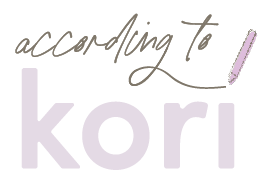5 Basic Writing Rules to Keep You from Writing Basic
Writing comes in various forms, shapes and sizes — from books, to short stories, to blog posts, to news articles, to editorials, to tweets and IG captions, to business proposals, to emails, to essays, to marketing copy… Okay, you get the point.
Obviously, there’s a plethora of ways to express a thought or idea through writing, but the objective behind whatever you write is pretty standard across the board — for people to read it, connect with it, and respond to it.
Take writing an IG caption, for example. You spend half the day brainstorming this groundbreaking caption that’s witty and vulnerable and funny and inspiring, while trying not to be too deep or over the top (no? Just me? Ok lol). Why? Because you want your post to resonate with readers enough to like, share and comment. Okay, one more. Say you’re sending an email for work. Chances are you’re either pitching or requesting information to/from a colleague. Whatever the case, the goal is to get your message across in a clear, effective way to get the response you want (be it a raise, promotion, project status update, etc.) .
Whether you’re penning a book, article, email or IG post, your writing should do three things: get read, resonate with your readers, and render a response that aligns with the goal of your message. Trust me — it’s much simpler than it sounds.
If you want to be a writer who’s far from basic, here are five basic writing rules that I live by*:
know your audience.
Before you write a single word, knowing your audience is key to ensuring you’re using the right tone and language to get your message across. If your audience isn’t well-versed on the subject you’re writing about, it’s best to avoid professional jargon and terminology that may confuse your readers. Pro tip: When in doubt, dumb it down.
write clear, concise statements.
Unless you're writing a full-length novel, no one wants to read something that's drawn out and super wordy. To effectively get your message across, you need to get to the point. You can do this by using shorter words, sentences and paragraphs and cutting the "fluff" (unnecessary words) from your writing.
Use action verbs and strong adjectives.
Powerful writing includes language that shows confidence and credibility. Using strong verbs and adjectives that express action clearly and directly is an effective way to strengthen your writing.
Don’t use words you don’t know.
I have a little theory: When you try to sound smart, you sound dumb. Using big, fanciful words in your writing to impress your readers ain’t it — ESPECIALLY if you’re using them in the wrong context. If you don’t know the meaning of a word, don’t use it. It’s best to just keep your wording simple to avoid confusion and ensure you’re getting your message across in the most effective way possible.
proofread your work.
Ever heard the phrase "think before you speak"? Well the same rule applies to writing. To ensure you're communicating effectively, it's important to check, double-check and triple-check for any typos or grammatical errors before publishing or sending your writing.
Welp, that’s all I’ve got for now. Hopefully you found this helpful!
Do you apply any of these rules to your writing? Anything you’d like to add? Let’s chat in the comments!
